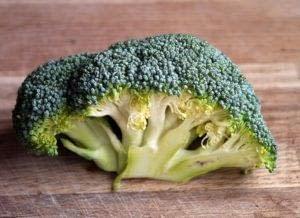
My mom hates Brussels sprouts, which is why she never made them for us growing up. I didn’t try one of them until a year or so ago (and LOVED it personally). But if you don’t like Brussels sprouts or broccoli or a few certain other green veggies, there may be a scientific reason for that!
Cruciferous vegetables such as broccoli, Brussels sprouts, cabbage, Bok Choy, kale, and turnips, contain protective, anti-thyroid chemicals called glucosinolates.
Why Glucosinolates in Green Veggies Are A Problem
Glucosinolates act as goitrogens, which inhibit direct thyroid processes, and also block iodine absorption necessary for proper thyroid function. Your thyroid gland produces the thyroxine (T-4) and triiodothyronine (T-3) hormones which affect metabolism and energy production, protein synthesis, body temperature, and heart rate – not something you want to mess with. And iodine deficiencies can lead to slowed sexual and mental maturation. Not fun. An estimate of more than one billion people are at risk
of thyroid disfunction.
 Why Glucosinolates Might Taste Bitter To You
Why Glucosinolates Might Taste Bitter To You
Research suggests we even have a taste receptor (hTAS2R38) that detects glucosinolates in food. A 2006 Study divided 35 people by their level of sensitivity to glucosinolates. The participants rated the bitterness level of vegetables which contained glucosinolates (watercress, broccoli, kale, turnip, horseradish, etc.), compared to “bitter” foods which do not contain glucosinolates (radicchio, endive, sprouts, sanbitter, etc.). The people sensitive to glucosinolates found the glucosinolate-containing vegetables 60% more bitter than the people not sensitive to glucosinolates. Both the sensitive and non-sensitive groups rated the non-glucosinolate bitter vegetables on similar levels.
In other words: if you’re particularly sensitive to gluconsinolates, such veggies may literally taste more bitter to you. It’s not all in your head! You’re just looking out for your thyroid…
(Well, your tastebuds are.)
P.S. You probably don’t need to avoid cruciferous vegetables completely if you’re sensitive, just don’t binge on them per se. Cooking cruciferous vegetables can help neutralize negative effects.
References
1. http://www.jbc.org/content/153/1/151.short
2. http://www.sciencedirect.com/science/article/pii/0308814683900742
3. http://yadda.icm.edu.pl/yadda/element/bwmeta1.element.elsevier-8bcf4a92-41de-3c01-8817-32f5f475b56b/c/main.pdf
4. http://www.mayoclinic.org/diseases-conditions/goiter/basics/definition/con-20021266
5. http://www.ncbi.nlm.nih.gov/pmc/articles/PMC2537644/

